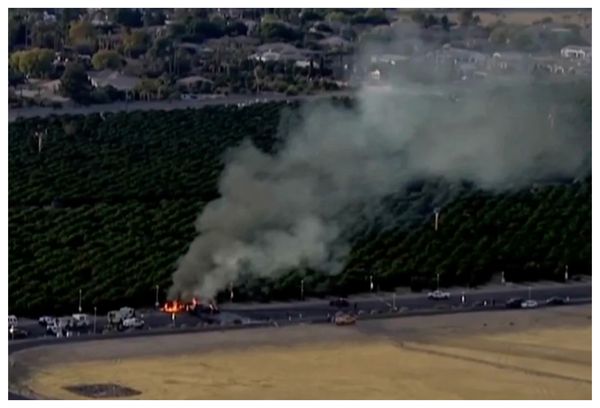
Australia’s media industry is in dire straits. Amid big tech deals drying up and falling revenues in a soft advertising market, newsrooms are resorting to widespread redundancies as a stopgap. Journalists are doing more with less as outlets compete for eyeballs in a cost of living crisis. But is that your problem? Or rather, should taxpayers bail out journalism? That’s the question our debaters are throwing around in this week’s Friday Fight. Arguing the negative we have professor of economics Chris Berg. And for the affirmative corner we have Tim Burrowes, owner of the media industry newsletter Unmade.
Before I explain why a taxpayer bailout for journalism is the least bad option we’ve got left, let’s recap how we ended up in this mess.
Newspapers used to have a great business model. Advertisers would pay a lot of money to reach the readers because it was the most efficient way of selling stuff. Delivering great journalism was what brought the eyeballs to those ads. The civic benefit was merely a happy byproduct. But it was a real and important byproduct.
Then digital disruption came along. Classified advertisers — jobs, real estate, cars and the rest — could do it more cheaply and efficiently online. And so could brands.
Fair enough. That’s the free market, baby.
And then the market broke.
The platforms, headquartered overseas, have been able to legally send most of their revenue offshore, booking what would otherwise have been local profits into low-taxation countries.
The Australian Competition and Consumer Commission (ACCC) reckons Meta banks $5 billion but declares a tiny fraction of that locally. Digital advertising peak body IAB Australia estimates Google’s search monopoly is worth $6.5 billion in Australia.
That creates a hit on taxpayers as advertising that once would have gone to tax-paying local media companies goes overseas instead.
That’s what the government was trying to address when it created the Multinational Anti-Avoidance Law in 2015 (until the likes of PwC helped overseas companies restructure their local operations and beat the law).
However, the erosion of the local tax base isn’t the only market failure.
Paying less tax allows businesses to offer cheaper advertising rates than their rivals. As a result, brands chasing the best return on their advertising investments end up choosing the platforms. Which makes it even harder for news companies to compete.
That’s where a digital levy, not on profits, but on advertising spend by local advertisers, comes in. You can’t easily hide that or redirect it offshore. A double benefit will flow the other way instead. A levy will bring in more local tax and level out the playing field. To maintain their profits after paying the levy, the platforms would need to put up the price of their advertising, which would make it more viable for their local rivals to compete on price.
And the pool of money raised — even a 1% levy on Meta and Google alone might raise $100m per year — could then be used to fund a tax offset for news companies to invest in journalism.
The precedents are already there. It could work in a similar way to the tax offset already available as an incentive for film and TV production. Eligible film and TV productions can claim back up to 40% of what they spend on productions. If making The Great Gatsby is in the interest of the Australian taxpayer, then so is covering the news.
With a clear set of rules, that would be a mechanism far closer to the rule of law than the winners-and-losers system created by forcing Facebook and Google to do deals with a range of publishers of their choosing when the threat of the News Media Bargaining Code arrived in 2021. It would also incentivise news companies to actually spend the money on journalism rather than using it to merely drive up profits, as was often the case with the last lot of no-strings-attached payouts.
And it would be less chaotic than actually designating platforms under the code and forcing them to negotiate individually with the 50+ news sources that have already registered with the Australian Communications and Media Authority.
If the government pushes on with designating Facebook, most likely its parent company Meta chokes off all traffic it currently sends to news sites so it can argue during those forced negotiations that it derives no benefit. In turn, the ACCC would argue that this is a misuse of market power, at which point Meta might well leave the market, plunging small businesses reliant on its platforms into chaos.
The platforms would probably prefer the certainty of a modest levy over the chaos of a confrontation. It will recreate a level playing field and a more orderly market.
Bring on the bailout.
Read the opposing argument by Chris Berg.
Should taxpayers bail out journalism? Let us know your thoughts by writing to letters@crikey.com.au. Please include your full name to be considered for publication. We reserve the right to edit for length and clarity.







